第94章 MADAME SAND AND THE NEW APOCALYPSE(8)
Industrious and sober as they were, originally, they grow quickly intemperate and idle; and Hebronius, who does not appear among his flock until he has freed himself of the Catholic religion, as he has of the Jewish and the Protestant, sees, with dismay, the evil condition of his disciples, and regrets, too late, the precipitancy by which he renounced, then and for ever, Christianity."But, as he had no new religion to adopt in its place, and as, grown more prudent and calm, he did not wish to accuse himself unnecessarily, once more, of inconstancy and apostasy, he still maintained all the exterior forms of the worship which inwardly he had abjured.But it was not enough for him to have quitted error, it was necessary to discover truth.But Hebronius had well looked round to discover it; he could not find anything that resembled it.Then commenced for him a series of sufferings, unknown and terrible.Placed face to face with doubt, this sincere and religious spirit was frightened at its own solitude; and as it had no other desire nor aim on earth than truth, and nothing else here below interested it, he lived absorbed in his own sad contemplations, looked ceaselessly into the vague that surrounded him like an ocean without bounds, and seeing the horizon retreat and retreat as ever he wished to near it.Lost in this immense uncertainty, he felt as if attacked by vertigo, and his thoughts whirled within his brain.Then, fatigued with his vain toils and hopeless endeavors, he would sink down depressed, unmanned, life-wearied, only living in the sensation of that silent grief which he felt and could not comprehend."It is a pity that this hapless Spiridion, so eager in his passage from one creed to another, and so loud in his profession of the truth, wherever he fancied that he had found it, had not waited a little, before he avowed himself either Catholic or Protestant, and implicated others in errors and follies which might, at least, have been confined to his own bosom, and there have lain comparatively harmless.In what a pretty state, for instance, will Messrs.Dr--d and P--l have left their Newman Street congregation, who are still plunged in their old superstitions, from which their spiritual pastors and masters have been set free! In what a state, too, do Mrs.Sand and her brother and sister philosophers, Templars, Saint Simonians, Fourierites, Lerouxites, or whatever the sect may be, leave the unfortunate people who have listened to their doctrines, and who have not the opportunity, or the fiery versatility of belief, which carries their teachers from one creed to another, leaving only exploded lies and useless recantations behind them! Iwish the state would make a law that one individual should not be allowed to preach more than one doctrine in his life, or, at any rate, should be soundly corrected for every change of creed.How many charlatans would have been silenced,--how much conceit would have been kept within bounds,--how many fools, who are dazzled by fine sentences, and made drunk by declamation, would have remained, quiet and sober, in that quiet and sober way of faith which their fathers held before them.However, the reader will be glad to learn that, after all his doubts and sorrows, Spiridion does discover the truth (THE truth, what a wise Spiridion!) and some discretion with it; for, having found among his monks, who are dissolute, superstitious--and all hate him--one only being, Fulgentius, who is loving, candid, and pious, he says to him, "If you were like myself, if the first want of your nature were, like mine, to know, I would, without hesitation, lay bare to you my entire thoughts.I would make you drink the cup of truth, which Imyself have filled with so many tears, at the risk of intoxicating you with the draught.But it is not so, alas! you are made to love rather than to know, and your heart is stronger than your intellect.You are attached to Catholicism,--I believe so, at least,--by bonds of sentiment which you could not break without pain, and which, if you were to break, the truth which I could lay bare to you in return would not repay you for what you had sacrificed.Instead of exalting, it would crush you, very likely.